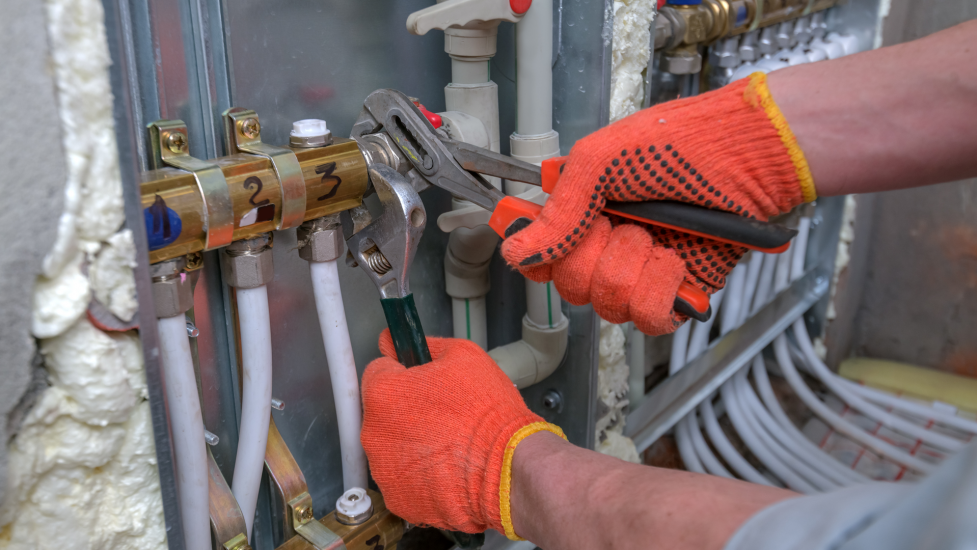In addition to active duty military service, there are many jobs and careers that are still of service to the U.S. and are military-adjacent. From cybersecurity, to electronics manufacturing, to food services, there are a multitude of opportunities.
To facilitate the safety and effectiveness of those who serve with our nation’s Navy, Marines, and Coast Guard, having trained experts to manage and execute the maintenance of aircraft carriers, surface ships and submarines is critical. An historic program open to civilians is expanding to meet these needs.
All four U.S. naval shipyards, the Norfolk Naval Shipyard (NNSY), Portsmouth Naval Shipyard (PNSY), Puget Sound Naval Shipyard and Intermediate Maintenance Facility (PSNS&IMF)and Pearl Harbor Naval Shipyard and Intermediate Maintenance Facility (PHHSY&IMF) have apprenticeship programs that partner with local community colleges and enable applicants to learn and train to become skilled journeyman.
Many veterans often relocate to communities near military bases. These programs can be an opportunity to continue to serve the country, albeit in a different capacity, while learning valuable skills that can lead to a rewarding career.
Addressing a Workforce Need Locally
The Fleet Readiness Center East (FRCE) in North Carolina is the state’s largest maintenance, repair, overhaul, and technical provider with more than 4,200 military and civilian workers. It serves as a vital part of the U.S. Navy readiness centers.
Late last year, it launched an apprenticeship program to solve difficulty recruiting and retaining aircraft maintenance professionals. Trades that the programs train for can include:
- Boilermaker
- Electrician
- Electronics Mechanic
- Fabric Worker
- Heavy Mobile Equipment Mechanic
- Insulator
- Machinist
- Marine Machinery Mechanic
- Metals Inspector
- Painter
- Pipefitter
- Rigger
- Sheet Metal Mechanic
- Shipfitter
- Shipwright
- Welder
“They are looking for talented individuals who want a rewarding career with the federal government,” says Jenefer Snyder, Ed.D., dean of Social Sciences and Education for Tidewater Community College, which partners with the Norfolk Naval Shipyard for the apprenticeship program. “I can tell you that I have heard great pride in their supervisors and superintendents, great pride that they are responsible for the maintenance of the fleet of ships that our military uses.”
A Long History
These apprenticeship programs have a long history. Just this year, the PHNSY & IMF celebrated its centennial anniversary, the NNSY marked its 107th anniversary, and the PSNS & IMF marked its 119th year. While these jobs are at naval shipyards, the program is also open to civilians. (For example, the PHNSY & IMF has approximately 6,000 civilian workers and 500 military workers.)
“We are extremely honored to have had this long-term partnership, which educates local talent to become the skilled workforce required to maintain the world-class Naval complex. Our graduates are the dedicated individuals who repair, maintain and modernize the U.S. Pacific Fleet,” said Dr. Fumiko Takasugi, Dean of Transportation and Trades for Honolulu Community College, which partners with the Pearl Harbor Naval Shipyard.
A Long-Term Benefit
An application is required, as is a placement or assessment test that helps determine college readiness. Once accepted, all academic tuition and book costs are paid, as your time in the program as it is considered an “earn while you learn” opportunity. In partnership with community colleges, the program is four years long, including academic study, trade theory and on-the-job training.
The academic portion for the naval shipyard apprenticeships can include courses that cover technical drawing, occupational safety, science, quality assurance, psychology technical writing and math. Participants can earn a certificate or associate degree, depending on the shipyard program.
“Participants in programs like these not only gain mechanical skills that are needed to produce aircraft, engines and components, but also acquire a broad perspective of how our mission supports the fleet,” said Jeff Nelson, head of FRCE’s Corporate Operations Group. FRCE partners with Craven Community College for its apprenticeship program.
“This is a tremendous opportunity for the apprentices. You only get out of these programs what you put into it. The application of knowledge, skills and abilities learned through the program, combined with personal commitment to our mission, are the keys to success,” says Nelson.
Because of COVID-19, community college partners have scrambled to provide uninterrupted teaching while instituting safety protocols.
“Because of social distancing, we’re already using Zoom a little bit to reduce the number of students in each classroom,” Snyder says. “For example: if I was teaching a course, I may physically be in one classroom with 12 students, and in classroom across the hall or next door. And they’d have me on zoom the whole time. They wear masks all day long.”
Snyder says for individuals eager to enter into a career that combines soft and technical skills towards a purpose greater than their local communities, naval shipyard apprenticeships are a good fit.
“(They’re for) someone looking for career that’s hands on. It’s a trade. Someone who likes to learn through active learning, while actually doing a task instead of simply sitting in the seat. It’s an active type of career, especially as an apprentice,” she says. “They say it’s a vigorous training program and on the job learning. I think you have to have a high level of integrity because you are working with military ships. You should like working in a team environment, be able to communicate well to share information.”
For graduates, it’s an opportunity to be of service to the military even if they don’t currently serve in one of the armed forces.
“Working for the Navy means a lot to me,” said PSNY apprentice Matt Maher. Maher graduated in 2017 and now works in the motor shop’s motor rewind department. “And I feel like I’m contributing to the defense of our great nation.”











